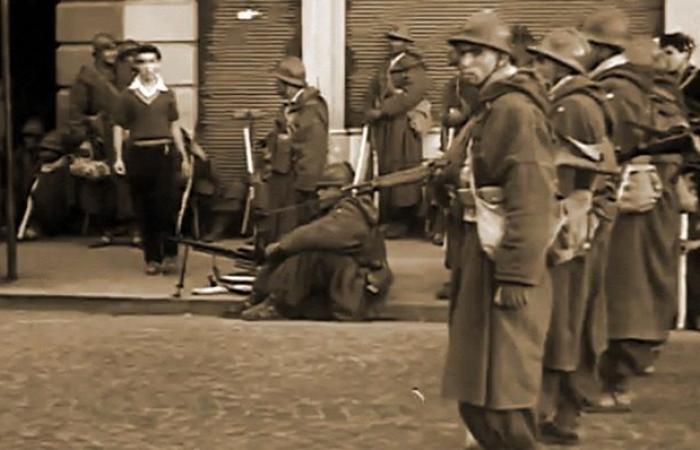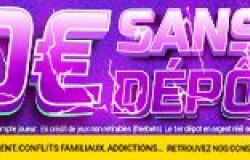Although some agree to call them “the riots of December 1952”, the incendiary uprisings which shook Casablanca this year were the paroxysm of a nightmare that could not be more macabre.
To gauge the extent of these events, a zoom-out on their main cause is necessary: in Tunisia, Farhat Hached, union hero and nationalist of the first rank, was assassinated on December 5, 1952 near Radès. According to several Moroccan historians interviewed, this independence leader was assassinated by the Red Hand, a European armed organization.
As soon as his assassination was announced by the media, a human tide blackened the entire Maghreb. At the same time, the General Union of Moroccan Trade Unions, in agreement with the Istiqlal Party, called for a general strike to protest against this despicable act. No sooner said than done: on December 7 and 8, Casablanca was on the verge of the apocalypse.
A city with apocalyptic overtones
For France, the image of the strong reactions was too important to ignore. But she barely had time to comment on the subject when peaceful demonstrations filled Casablanca, Rabat, Fez, Marrakech, Agadir and beyond on December 7.
But it was in the White City that the riots reached their peak, spilling over into the Foreign Legion and the army. Which had the poor reflex of shooting point-blank, or even point-blank, at the demonstrators, causing one hundred to three hundred deaths, according to Moroccan historians. The Resident General in Morocco dissolves Istiqlal and arrests its leaders. New clashes punctuated the summer of 1955 in this same city and multiplied throughout Morocco.
The events of Fez, this time bomb
Until 1947, the city of Fez had been the essential theater of the socio-economic revolt of the nationals, but Casablanca was, in those years, the city where the periodicity and severity of the incidents were the most phenomenal, having occurred in a climate of social transition fueled by demands for political reforms to the violence of the nationalist movement against the colonial order.
In October 1951, Arab representations at the UN went so far as to criticize France for contravening the principles of the Charter of the United Nations and the Declaration of Human Rights in Morocco, but their approach was dismissed by 28 votes to 23, with the United States opposing it. The approach was poorly received by Minister Robert Schuman, who was outraged and felt that it was necessary to find, whatever the cost, an escape route to the torture of the Moroccan people.
The request of the Arab States to the UN was nevertheless reiterated in 1952, both for Morocco and for Tunisia, and this time the Americans agreed to support it, in return for which the resolutions were formulated in a firm but moderate tone, inviting to talks “with a view to the accession of Tunisians to the capacity to administer themselves” and “with a view to developing the free political institutions of the Moroccan people”.
These interventions at the UN have, according to French officials, comforted “the troublemakers in Tunis” as in Casablanca, while Moroccan unions and parties have focused on the North African impact of the assassination of the Tunisian leader. Ferhat Hached on the eve of the first day of agitation.
On March 26, 1952, without receiving the slightest sign from Paris, the Resident of Hauteclocque had Chénik and three other ministers of the Tunisian government deported to have them replaced by the pro-French Baccouche, in a policy that historians have described as a “coup by force and fait accompli” and which has worsened the social climate not only in Tunisia, but also in Morocco.
On March 30, 1952, the fourth day of the fortieth anniversary of the French protectorate in Morocco, demonstrations with flags multiplied throughout the city, causing broken windows, injuries and machine gun fire. Like a bottle thrown into the sea, these cries of distress and calls for help were relayed throughout the Maghreb.
In Tunisia, the plan proposed by French Prime Minister Antoine Pinay was rejected by the Tunisians and, in mid-November 1952, the Moroccan and Tunisian questions were placed on the agenda of the United Nations General Assembly. These events could have continued, but thanks to the decisive intervention of Istiqlal, the situation quickly stabilized. The party, despite the arrests of its leaders, succeeded in channeling popular discontent and organizing national resistance, thus preparing the ground for the liberation of the country. Before long, pressure on the colonial government grew, precipitating negotiations for Independence.






